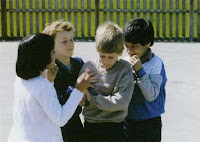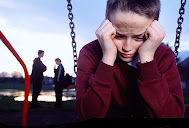Is it ASD, ADHD, or Both?

"My 6-year-old son was diagnosed with ADHD at age 5. But now we are seeing signs that he may have 'high functioning' autism. What percentage of ADHD children also have autism? Is a dual diagnosis common?" Most kids with ASD level 1 (high functioning autism) don’t receive that diagnosis until after age 6. Usually, they are diagnosed with ADHD as toddlers. Part of the reason is that physicians routinely screen kids for ADHD but not for autism. Another reason is that an ASD child's social impairment becomes more evident once he starts school. Finally, physicians are reluctant to label a youngster "autistic." It is okay - and even a badge of honor - to have a hyperactive youngster , but it is another thing entirely to have an autistic youngster . Physicians make their diagnoses based on the youngster’s behaviors. Since kids with ADHD and ASD share similar behaviors, the two can appear to overlap. However, there is a fundamental difference between th





